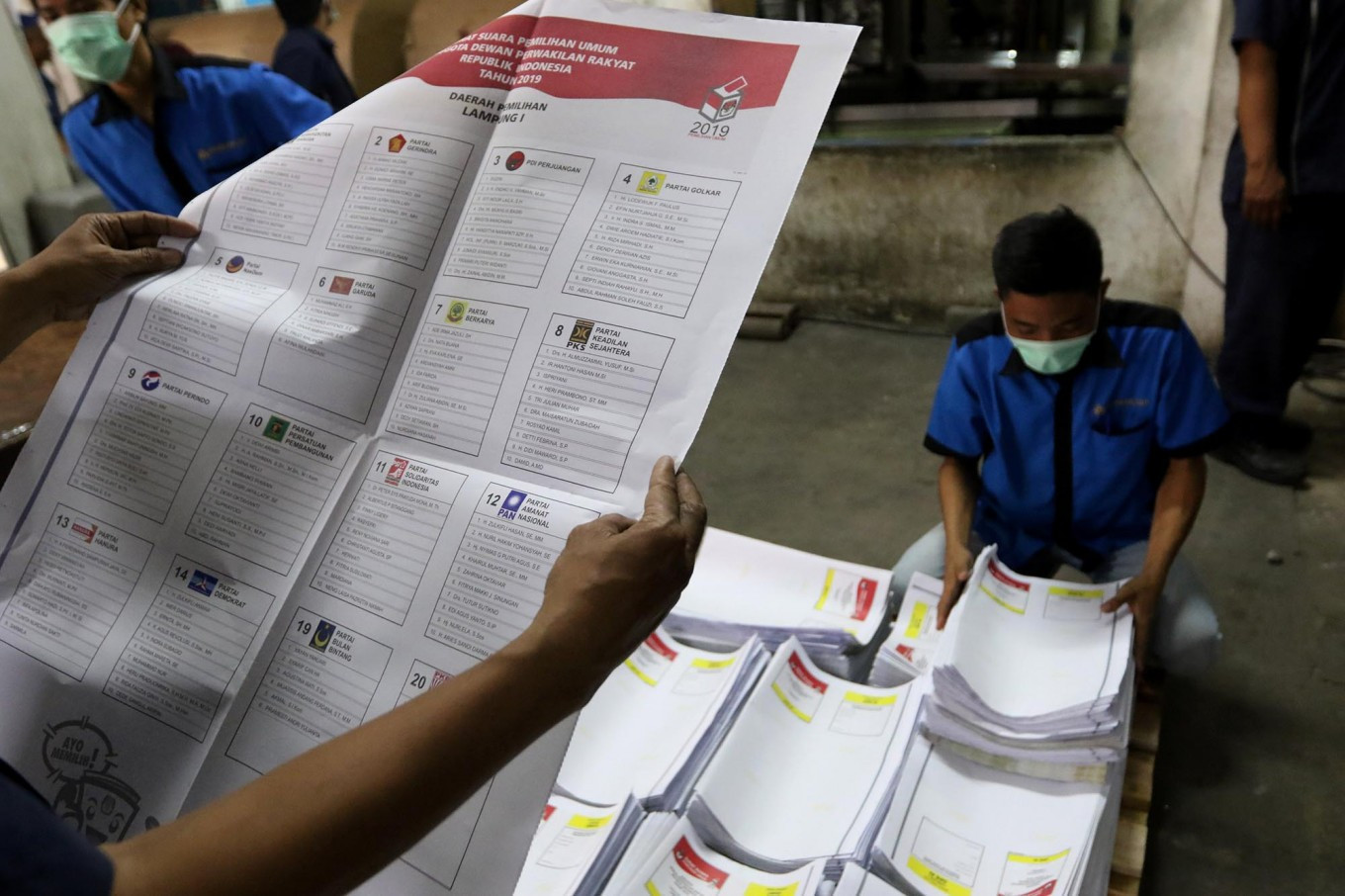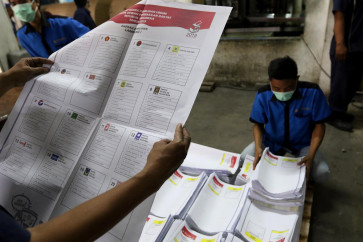Popular Reads
Top Results
Can't find what you're looking for?
View all search resultsPopular Reads
Top Results
Can't find what you're looking for?
View all search resultsAnalysis: RI mulls more cost-efficient but not necessarily most effective electoral system
Change text size
Gift Premium Articles
to Anyone
H
olding general elections for a country the size of Indonesia is always a huge and complicated undertaking. The country is constantly struggling to find the most cost-efficient way of running multiple elections at the national and regional levels, but “effective” is never a goal as long as the electoral laws are drawn up by big political parties more interested in protecting their interests than ensuring people’s democratic rights.
Now the Constitutional Court has stepped in with a ruling that states that starting in 2029, the national and regional elections cannot be held in the same year as happened in 2024. The court argued the split would allow voters to better exercise their democratic rights as they can distinguish the different dynamics at play between national and regional elections.
The House of Representatives will now have to change the electoral laws accordingly. Some political parties did not take the ruling kindly, saying the court had gone beyond its remit in determining the content of legislation, which is the domain of the House.
The court last year also struck out the presidential thresholds in the electoral law, which means that in 2029, any political party eligible to contest the elections can put up their own presidential and vice-presidential candidates. The threshold has limited the number of candidates contesting the elections to only two or three since 2009.
The eight political parties in the House are still assessing how the latest ruling will impact their own electoral standing. They still have some control over the electoral laws.
Based on that ruling, the elections for president and vice president, members of the Regional Representatives Council, and the House of Representatives will be held in 2029. The election for the heads of regional administrations (governors, regents, and mayors) and members of the regional legislative councils (province and regency levels) will be held between 24 and 30 months later, meaning in 2031.
Cost is always a huge factor in organizing elections for a country of 285 million people, spread over many islands in the archipelago, and with the elections contested by more than 20 political parties.



















